- This Day In History
- History Classics
- HISTORY Podcasts
- HISTORY Vault
- Link HISTORY on facebook
- Link HISTORY on twitter
- Link HISTORY on youtube
- Link HISTORY on instagram
- Link HISTORY on tiktok

Speeches & Audio
Tito visits the united states.
Yugoslavia's President Joseph Broz Tito, makes his first visit to the United States in October 1963. He expresses his gratitude to Americans for their welcoming greetings.
Create a Profile to Add this show to your list!
About Search

John F. Kennedy
Remarks of welcome at the white house to president tito of yugoslavia.
Mr. President:
I take great pleasure in welcoming you to the United States. I hope during this visit we can reciprocate some of the hospitality that you have shown to members of the United States Government, both members of the Cabinet and most recently Members of the Congress, in your own country.
This is a difficult and dangerous world in which we live. I think it is most important that we have--across the distance of water and across perhaps a difference in political philosophy--that we have an understanding of the basic policies and objectives of the countries through the globe so that danger may be lessened.
We are very glad to have you here, Mr. President, so that you can see something of the United States. I am glad you are going to the South and then to the West. This is a vigorous and progressive people that you will see. Nature has been very generous to us, and I think that your visit here, where I am sure you will be warmly and hospitably treated and welcomed, will give you a greater understanding of the policies and objectives and meaning of the United States of America.
So this visit is very welcome. We are very glad to have you here at the White House, and I hope as a result of your visit that the relations between our two peoples will become stronger and that our commitments to national independence will be strengthened.
So, Mr. President, we are very glad to welcome you and your distinguished wife, the members of your government, here to the White House.
Note: The President spoke at 11:45 a.m. on the South Lawn at the White House where President Josip Broz Tito was given a formal welcome with full military honors.
In his response President Tito expressed his thanks for the friendly reception and his pleasure at the prospect of discussing with President Kennedy questions of concern to both countries. He looked forward also, he added, to seeing at least a part of the United States and to observing at firsthand "some of the great achievements of the hard-working American people."
Speaking of the United States and Yugoslavia as nations linked since the end of the First World War by their common devotion to the ideals embodied in the Charter of the United Nations, President Tito said his government had always wished to maintain good and friendly relations with the United States. "I believe," he concluded, "that our exchanges will contribute both to the stability of our good relations and our mutually beneficial cooperation, and will also reflect our common interest in the preservation and strengthening of peace in the world." President Tito closed by conveying the "friendly greetings of the people of Yugoslavia to the people of the United States of America."
In his closing remarks President Kennedy referred to President Tito's wife, Jovanka, who accompanied her husband.
John F. Kennedy, Remarks of Welcome at the White House to President Tito of Yugoslavia Online by Gerhard Peters and John T. Woolley, The American Presidency Project https://www.presidency.ucsb.edu/node/236419
Filed Under

Simple Search of Our Archives
Report a typo.
- Share full article
Advertisement
Supported by
Tito to Visit Nixon in Capital Today
By Bernard Gwertzman Special to The New York Times
- Oct. 28, 1971
WASHINGTON, Oct. 27 — President Tito of Yugoslavia arrived today for the start of a week‐long visit to the United States.
Shortly after his Soviet‐built tourboprop airliner landed at nearby Andrews Air Force Base, the 79‐year‐old Communist leader was taken by Marine Corps helicopter to Camp David, President Nixon's retreat in Maryland. The Yugoslav leader will spend the evening there and will be formally welcomed at the White House tomorrow.
State Department officials said that Mr. Nixon's decision to put Camp David at the disposal of Marshal Tito reflected Mr. Nixon's personal esteem for him. On Friday, in an effort to head off any incidents by Ser bian or Croat émigré groups, Mr. Nixon issued a special state ment calling on Americans to show respect and courtesy for his guest.
For security reasons, the State Department has not yet made public President Tito's itinerary after he leaves Wash ington on Saturday morning. It is known that he is due to visit Houston, San Francisco and Los Angeles before going on to Ottawa next Tuesday.
Security at Andrews Air Force Base was tighter than usual, with an Air Force sharpshooter stationed on the roof of the operations building. The con cern for security reflects the Administration's desire to avoid a repetition of an incident in 1963 when several members of his party were roughed up while Marshal Tito was visiting New York.
Administration sources said that Mr. Nixon was interested in learning President Tito's im pressions of Leonid I. Brezhnev, the Soviet party leader, who visited Belgrade in September and who will be Mr. Nixon's host in Moscow next May. Pres dent Tito has indicated interest in the United States effort to improve relations with Peking since only in the last two years has his Government been able to re‐establish normal re lations with Communist China.
President Tito has recently visited Cairo and has been briefed on the Egyptian Middle East position. He is expected to seek clarification for the Egyptians on certain aspects of the current American effort for an interim Mideast agreement including the opening of the Suez Canal.
American officials said they believed President Tito regarded Mr. Nixon's invitation, which the White House tomorrow, as a personal triumph, a sign and the respectability that his Com munist country has gained in the West in recent years.
Marshal Tito's advisers were also hoping that the visit would result in a further improvement in relations between the United States and Yugoslavia and an increase in trade, which at pre sent is about $100‐million a year.
clock This article was published more than 46 years ago
Tito Considering Visit to United States In Spring, Yugoslav Aide Tells Carter
Yugoslav President Tito is considering visiting the United States next spring, a member of the Yugoslav government told President Carter at the White House yesterday.
Edward Kardelj, a member of the Yugoslav presidency, told Carter that the 84-year-old Marshal Tito had accepted his invitation to visit the United States and is "thinking of coming here sometime next spring."
"That's good news for me," the President replied.
It was also disclosed yesterday that Tito recently sent Carter a letter relaying the North Korean government's interest in meeting with American officials.
The U.S. response, according to the President's national security adviser, Zbigniew Brzezinski, was that the United States "is not seeking a meeting" with the North Koreans but would attend one on condition that South Korea was also invited to participate.
Brzezinski said that condition "is an unshakable commitment on our part and that the United States will not "be a party either to the isolation ot undermining of South Korea."
The message relayed through Tito was the third time since Carter's election last November that North Korea has sent him a message indicating an interest in a meeting. After each one, U.S. officials have replied they would attend such a meeting only if South Korea also is invited.
In other developments yesterday, White House officials said the President plans to brief "the appropriate Senate committee" next week on progress in the strategic arms limitation talks with the Soviet Union. It has not been decided whether that will be the Foreign Relations ot Armed Services committee.
Plans for a trip by Carter across the country Oct. 21 and 22 were also made public. On Oct. 21, the President will address a public forum and conduct "a dialogue with urban poor people" in Detroit, and that night address the lowa Jefferson-Jackson Day dinner in Des Moines.
On Oct. 22, Carter will visit the headquarters of the Strategic Air Command near Ohama, Neb., attend a discussion on water policy and a briefing on the Panama Canal treaties in Denver and that night address a Democratic Party fund-raising dinner in Los Angeles. He will return to Washington after the dinner, arriving early on the morning of Oct. 23.
Late yesterday, Carter left for Camp David, Md., where he will spend the weekend. He will celebrate his 53d birthday at Camp David today.


Foreign Relations of the United States, 1955–1957, Central and Southeastern Europe, Volume XXVI
301. report prepared by the operations coordinating board 1.
PROGRESS REPORT ON “UNITED STATES POLICY TOWARD YUGOSLAVIA” ( NSC 5601) 2
(Policy Approved by the President January 24, 1956)
(Period Covered: September 6, 1956 through April 24, 1957)
A. Summary of Operating Progress in Relation to Major NSC Objectives 3
1. OCB Recommendation Regarding Policy Review. The OCB notes the NSC directive for a review of NSC 5601, contained in paragraph 24 of NSC 5616/2, 4 but considers that in the light of operating experience to date, and of anticipated future developments, there is no urgency for a review from the OCB standpoint.
2. Summary Evaluations. On October 15, 1956 the President issued the finding with regard to continued aid to Yugoslavia required by [Page 769] Section 143 of the Mutual Security Act of 1954 as amended. This action was based on a determination that Yugoslavia remained independent of Soviet control and that U.S. objectives would, on balance, continue to be served by U.S. support of Yugoslavia. The finding permitted economic aid to Yugoslavia to go forward, but deferred a decision with regard to military aid with the exception of spare parts and maintenance items. (See paragraphs 3.a. and 6.)
3. Status of and Progress on U.S. Commitments for Funds, Goods or Services and Other Programs.
4. New U.S. Commitments for Funds, Goods or Services Entered Into During the Reporting Period.
No new commitments except as in 3.b. and 3.c.
B. Major Operating Problems or Difficulties Facing the United States
5. Hungarian Refugees. As of March 1, 1957, there were over 17,000 Hungarian refugees in Yugoslavia. UN observers have reported that conditions of housing and feeding provided by the Yugoslavs are roughly comparable to Austrian standards. New refugee flow has been reduced to a trickle and it is unlikely that the number in Yugoslavia will exceed 20,000. To date, about 400 have settled permanently in Yugoslavia, over 250 have gone from Yugoslavia to Western countries other than the United States, and almost 1,800 have voluntarily returned to Hungary. The Yugoslavs complain that the refugees represent a heavy economic burden to them, and continue to press the West for financial and material assistance in caring for the refugees, as well as for action to remove some of the refugees to the countries of second asylum. No refugees will be taken directly into the U.S. from Yugoslavia on parole, at least until the proposed amendments to the Immigration and Nationality Act have been acted upon. However, the Department of State is seeking to work out a plan (for which $2 million has been allocated) for helping the Intergovernmental Committee for European Migration to move 10,000 Hungarians from Yugoslavia to countries of permanent resettlement or secondary asylum. Some U.S. assistance for interim care and maintenance of the refugees is also being considered.
6. Military Aid. The resumption in March 1956 of previously programmed deliveries, following a 10-months’ suspension, continued for less than four months before another partial suspension was instituted on the basis of Congressional hesitancy about aid for Yugoslavia. In October 1956 this partial suspension was extended to all items except spare parts and maintenance equipment. The Departments of State and Defense have reviewed this situation a number of times in recent months, and an early decision on a resumption of relatively normal shipments appears probable. Such a decision is required to avoid expensive prolonged storage of jet aircraft incorporated in prior programs. On the political level the Yugoslavs have requested a decision and on the working level Yugoslav military officers have made it apparent to American Military Assistance Staff officers in Belgrade that the present stoppage is materially affecting the tactical efficiency of the Yugoslav Air Force. A similar problem exists concerning three OSP minesweepers which have been completed for [Page 772] the Yugoslavs in French yards and which are now using up urgently needed harbor space.
7. Tito Visit. After premature reports of a possible visit to the United States by Tito began circulating publicly, Congressional and press opposition mounted rapidly. In the face of the unfavorable atmosphere building up here, the Yugoslav press announced Tito ’s unwillingness to visit the U.S. under such conditions, at least for the time being. Yugoslav officials have since expressed their disappointment at the foregoing incident and have pointed out that recent attempts by the Soviets to pressure the Yugoslavs into ideological conformity have been encouraged, in part, by the Soviet belief that Yugoslavia has become relatively isolated in relations with the United States. Nevertheless, a visit is now unlikely this year in the absence of a renewed high-level U.S. initiative.
8. Yugoslav Request for Long-Term Aid. The Yugoslavs, on November 30, 1956, formally requested a five-year agricultural commodity aid program of about $100 million per year, consisting mainly of wheat. As yet, no inter-agency consideration has been given to this proposal. The prospect now for a multi-year agreement of this kind for Yugoslavia is not very good. Consideration of this request will be affected by the magnitude of new PL 480 authority which may be voted by Congress, general policy regarding future multi-year agreements of this kind and the specific political problem of Yugoslavia.
9. Majdanpek Copper Project. A request for a U.S. loan of about $10 million to assist the development of a copper mining facility and related plants in Yugoslavia as part of an over-all project in which the Yugoslav Government is greatly interested is still outstanding. The Yugoslavs continue to press for support on this matter.
C. Listing of Additional Major Developments During the Period
10. Summary of Yugoslav-Soviet Relations. The instability of the supposedly equal and bilateral relationship between the Yugoslav and Soviet Communist parties created by the declaration of June 20, 1956 during Tito ’s visit to Moscow, began to manifest itself soon thereafter. A secret letter was dispatched from the Soviet Communist Party to the satellites and some West European parties warning them against Yugoslav influence tending to splinter the Soviet orbit and “proletarian international solidarity.” In September 1956 Khrushchev flew to Yugoslavia to visit Tito , with the apparent intention of securing his acquiescence in the continuation of Soviet control in the satellites. These talks were extended by a flight of Tito and Khrushchev to Yalta, but were only a limited success from the Soviet point of view. The Yugoslavs seem to have agreed to accept such Stalinist figures as Gero in Hungary, but did not agree to cease intimate party [Page 773] relations with the satellites, nor, apparently, to cease trying to influence the satellites in the direction of “national Communism.”
11. Trade With the Sino-Soviet Bloc. Yugoslav trade with the Sino-Soviet bloc expanded somewhat during the period under review. It represented 22 per cent of total Yugoslav trade during 1956. Exports amounted to $74 million, while imports totalled $105 million. The excess of imports was financed primarily by drawings of more than $26 million on Soviet and satellite credits and loans during this same period. Exports to the bloc were comprised mainly of meats, fruits, tobacco, chemicals, lead, hemp, and wool. Imports were mainly cotton, petroleum, coal, iron and steel, some machinery and paper. During recent weeks difficulties encountered both in concluding trade agreements with the USSR and Eastern Germany and in obtaining Soviet agreement on the utilization of various promised credits, indicate a reversal of the present trend of increased Yugoslav-Soviet bloc economic relationships.
- Source: Department of State, OCB Files: Lot 62 D 430, Yugoslavia 1956–1957. Secret. A financial annex regarding U.S. assistance to Yugoslavia for fiscal years 1956 and 1957 and Mutual Security Program aid for fiscal years 1950–1956 is not printed. According to a letter attached to the source text by Charles E. Johnson , the OCB concurred in the progress report and approved it for transmittal to the NSC on April 24. The NSC noted the report on June 15 in NSC Action No. 1732. ↩
- Document 270 . ↩
- NIE 31–56, July 24, 1956—Yugoslavia’s International Position. [Footnote in the source text. NIE 31–56 is printed as Document 282 .] ↩
- For text of NSC 5616/2, “Interim U.S. Policy on Developments in Poland and Hungary,” see vol. XXV, pp. 463 – 469 . ↩
GREAT BRITAIN: The Tito Visit
The last time Tito left home on a bigtrip, he went to Moscow. That was back in 1946. Last week Tito was offagain, in a different direction. No longer Communism’s leadingnon-Russian, but now the world’s leading anti-Russian Communist, he wasgoing to London to see the Queen and her ministers. Object: a fullerpartnership with the West.
He traveled on a 720-ton ex-Italian minelayer, now the Yugoslav trainingship Galeb (Seagull). The royal welcome began in the Sicilian Channel,where the British destroyers Chieftain and Chevron steamed up to convoythe dictator. At Gibraltar three more British destroyers and threeaircraft carriers joined up, cannon booming, and 60 planes roared pastin a “flyover” (three crashed, killing four officers).
Up the coast of Europe and into the English Channel moved the tinyGaleb, beneath an umbrella of R.A.F. planes. Tito transferred to thePort of London launch Nore, passed up the Thames under London’s bridges(closed off and guarded by armed police) to Westminster Pier for agrade A reception by Prime Minister Churchill, Foreign Secretary Eden,the Duke of Edinburgh, a 166-man brass band. Then a War Office armoredRolls-Royce with bulletproof windowglass whisked Tito and Churchill offto No. 10 Downing Street.
The security precautions were extraordinary. Police leaves werecanceled, and specific news of each scheduled event was blacked outuntil it was over. Scotland Yard’s Special Branch issued detailedinstructions to its security forces only at the last minute, and thennot by phone but by messenger. Chief constables throughout Britain wereordered to report on all Yugoslavs in their areas; special officers,working with the Yugoslav embassy, guarded all suspectedindividuals—monarchists, anti-Titoists, crackpots andCommunists—according to “danger value.”
Your browser is out of date. Please update your browser at http://update.microsoft.com
Join us for the Rural and Urgent Care Clinics Virtual Summit 2024 to hear experts talk about high-quality virtual care from remote locations. Register now!
The clinic has come home
Families can finally access the excellent healthcare they deserve with the Home Smart Clinic, for acute care and condition management.
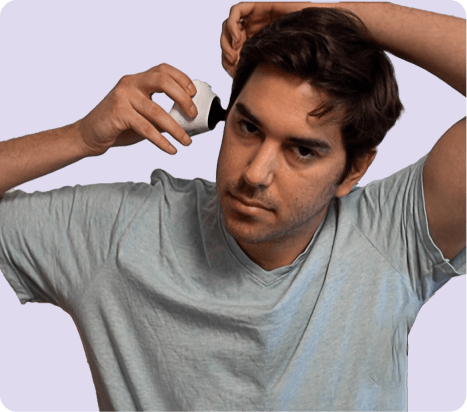
THE HOME SMART CLINIC:
All the care of the doctor, from the comfort of home.
The Home Smart Clinic enables remote physical exams by clinicians, regardless of where you are or what condition you have – acute or chronic.
It removes the barriers that prevented the home from being a place where quality primary care can be consumed. Episodic and longitudinal care can now be delivered and consumed from home, with no compromises.
Replicating doctors’ physical exams from home
Welcome to the new age of healthcare – virtually delivered, physical exams included. No sacrifices, no inconvenience, no inefficiencies.

Who we serve
Health plans.
We work with health plans to reduce cost of care, improve access to care, and member experience.
Health systems
Solving the home health delivery gap.
The home, the epicenter of our lives, is disconnected from healthcare. Audio and video only telehealth solutions fail to address the clinical needs of healthcare delivery – the ability to diagnose remotely and build trust with clinicians.
Meet your key business metrics with the Home Smart Clinic
Utilization.
compared to traditional telehealth, for more effective care
of visits resolved remotely
for improved quality of care and higher performance indicators

total cost of care reduction
diverting ER and UC visits and providing care at the most efficient sites
creating more satisfied patients and increased user retention
No matter where you are, TytoCare’s got you covered

HOME SMART CLINIC:
For healthcare from home, with no compromises
Regardless of what condition – episodic or longitudinal – the Home Smart Clinic elevates the home to be an integral and equitable place for primary care consumption.
The Home Smart Clinic solution includes the comprehensive range of elements required by healthcare organizations to launch a truly successful virtual care program.

PRO SMART CLINIC:
Meeting patients from any community site
Enable your clinicians to meet patients wherever they are, in the community or in their homes, with a clinical-grade remote physical exam device and our full Pro Smart Clinic solution.
Your clinicians can be wherever they are needed most at any given time – resulting in optimal resource utilization, and providing your patients with the best quality care.
Clinicians and patients love TytoCare
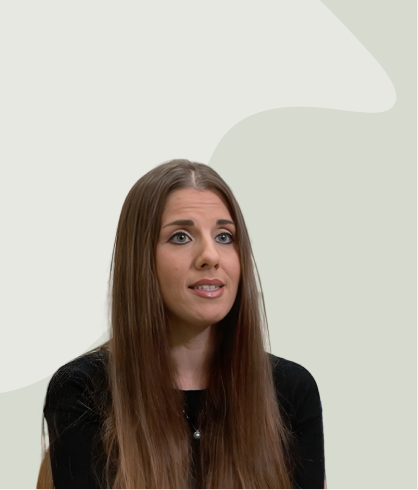
“TytoCare has been excellent for those middle-of-the-night worrying moments of mine as a mom, and it has definitely saved me an unnecessary visit to the doctor. TytoCare has made our Anthem plan so worthwhile.”
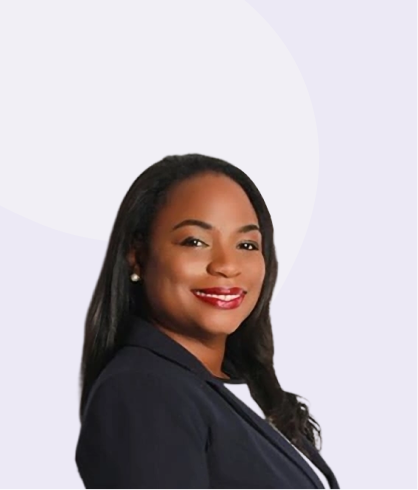
“TytoCare helps increase the convenience factor for families. It means less money lost for time away from work as well as less time away from school for mild to low acuity sicknesses. And for schools, they benefit because there is reduced absenteeism.”
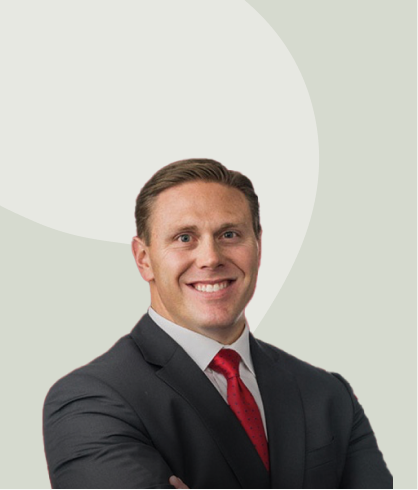
“To partner with TytoCare and the incredible technology that they have has been a real blessing to us, but mostly to the patients we’ve had the opportunity to serve.”
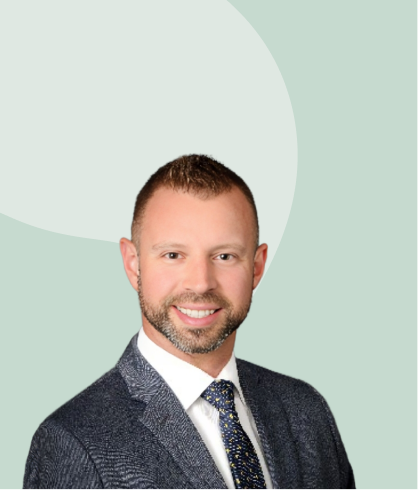
“St. Luke’s Health Plan was established on the foundation of removing barriers to care and our partnership with TytoCare is a major step forward in realizing that goal.”

“No child or parent wants to go to the emergency room, so Amerigroup has taken on the challenge of helping families improve and sustain their children’s health. Amerigroup’s TytoHome initiative furthers our goal of redefining healthcare and fortifying Texas communities.”

“It is absolutely wonderful to have a comprehensive exam, which you are limited with a regular video visit. Our patients really love the TytoCare device and they think that it’s very easy to use and convenient.”
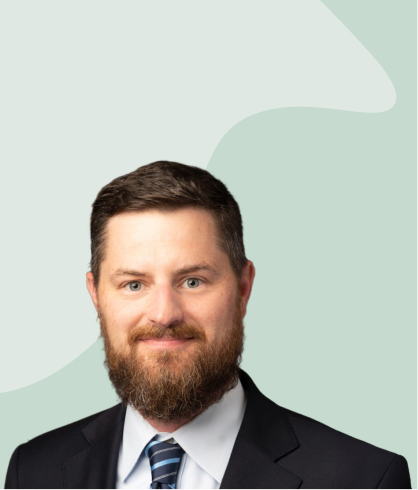
“The experience with TyoCare is very convenient, it’s very easy to use, in fact I’ve already recommended it to friends and family. We can get the same care, and it’s much more efficient and reduces our exposure.”
Trusted around the world
healthcare organizations
providers on platform
HOW TO MEASURE SUCCESS:
Home health delivery metrics™.
D iagnostic capabilities
Home Smart Clinic solutions must enable accurate diagnoses, and also a broad range of diagnosis capabilities.
R etention and acquisition
To impact overall business metrics, the Home Smart Clinic should increase retention and encourage acquisition of new members and patients.
V isit resolution
Along with diagnostic capabilities comes higher visit resolution numbers, for more effective care, no readmissions, and a reduction in unnecessary visits.
E ngagement
To measure behavioural change, there should be a rise in NPS scoring, in utilization rates, and in repeat visits.
Read more about virtual care with TytoCare

School Health Virtual Summit 2024
Watch the School Health Virtual Summit 2024 – an event dedicated to revolutionizing school health with innovative virtual solutions.
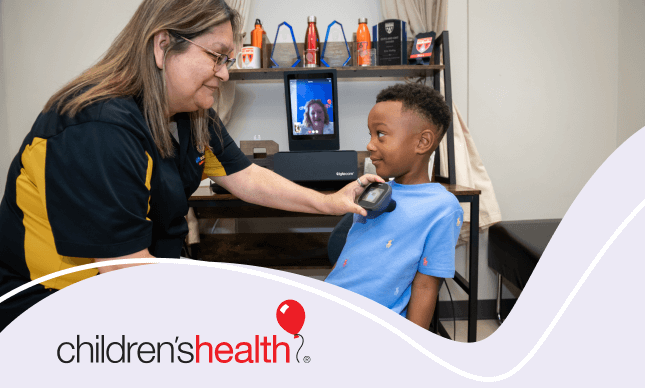
Bringing remote examinations to children in schools across Dallas
Discover how Children’s Health enhanced school healthcare access with TytoCare, reducing ER visits and supporting underserved communities effectively.

Detecting wheezes with TytoCare – how to optimize your patients’ experience
TytoCare is excited to bring you the latest enhancement to your TytoCare experience: Tyto Insights™ for Wheeze Detection. This new FDA-cleared feature, powered by AI, is a game-changer in diagnosing respiratory conditions during remote lung exams. Watch the webinar where Or Shanoon, Director of Product Management at TytoCare, showcases the potential of Tyto Insights™ in […]
Join the new age of primary care, with no compromises.
Make the home the preferred place for families to access quality primary care they can trust with no compromises, no inconvenience, and no inefficiencies.

Theme parks and Magic Kingdom

Travel Tickets

Visas and Passports

Travels Insurance

We offer the best service with the support of our Travel Agents
Travel tickets, cruises, theme park tickets, theme parks, car rental, visa and passport processing, tours, and much more, ensuring a personalized and unforgettable travel experience.


TTTUR GLOBAL SERVICE, Corp.
dba Titotur USA Travel Agency
9851 NW 58 Street Ste.119
Doral, FL 33178
Tel: +1 (305) 639-8037 / +1 (305) 381-5878
Whatsapp: +1 (786) 238-1174

- Terms and Conditions
- Privacy Policy


IMAGES
VIDEO
COMMENTS
This is a list of international trips made by Josip Broz Tito, during his tenure as the prime minister and later President of Yugoslavia. Josip Broz Tito visited 72 different countries during his time in office, between 1944 and his death in 1980. Tito's oversea trips were often named "Peace travels" by Yugoslavian media. Countries that Tito visited at least ten times were: Soviet Union (17 ...
Tito Visits the United States. Yugoslavia's President Joseph Broz Tito, makes his first visit to the United States in October 1963. He expresses his gratitude to Americans for their welcoming ...
Visit of President Tito of Yugoslavia Joint Statement. March 09, 1978. At the invitation of the President of the United States, Jimmy Carter, the President of the Socialist Federal Republic of Yugoslavia, Josip Broz Tito, paid a State Visit to the United States of America, March 7-9, 1978. In the talks, on the Yugoslav side, participated:
(7 Mar 1978) Yugoslav President Josip Broz Tito arrives in Washington DC, greeted by United States President Jimmy Carter, both give speeches.Find out more a...
President Tito's third official state visit to the United States, March 1st, 1978.President Tito is shown arriving to the White House and exchanging greeting...
President Josip Broz Tito: State visit. March 6-9, 1978: President Mika Spiljak: Official working visit. Private visit to Los Angeles February 3-4. January 31-February 2, 1984: ... United States Department of State. [email protected]. Phone: 202-955-0200. Fax: 202-955-0268 ...
Tito Visit to U.S. Set. February 4, 1978 at 7:00 p.m. EST. BELGRADE -- The Yugoslav government announced that President Josip Broz Tito, 85, will visit the United States next month at President ...
United States-Yugoslavia relations were the historical foreign relations of the United States with both Kingdom of Yugoslavia ... Tito with Rosalynn & Jimmy Carter during Tito's third state visit to USA in 1978. ... Lorraine M. Keeping Tito Afloat: The United States, Yugoslavia, and the Cold War (1997) online review.
Speaking of the United States and Yugoslavia as nations linked since the end of the First World War by their common devotion to the ideals embodied in the Charter of the United Nations, President Tito said his government had always wished to maintain good and friendly relations with the United States.
Yugoslav President Tito's state visit to Washington this week will climax what has been - even by his standards - a remarkable year.
WASHINGTON, Oct. 27 — President Tito of Yugoslavia arrived today for the start of a week‐long visit to the United States. Shortly after his Soviet‐built tourboprop airliner landed at nearby ...
Josip Broz ( Serbo-Croatian Cyrillic: Јосип Броз, pronounced [jǒsip brôːz] ⓘ; 7 May 1892 - 4 May 1980), commonly known as Tito ( / ˈtiːtoʊ /; [1] Тито, pronounced [tîto] ), was a Yugoslav communist revolutionary and politician who served in various positions of national leadership from 1943 until his death in 1980. [2]
Josip Broz Tito (born May 7, 1892, Kumrovec, near Zagreb, Croatia, Austria-Hungary [now in Croatia]—died May 4, 1980, Ljubljana, Yugoslavia [now in Slovenia]) was a Yugoslav revolutionary and statesman.He was secretary-general (later president) of the Communist Party (League of Communists) of Yugoslavia (1939-80), supreme commander of the Yugoslav Partisans (1941-45) and the Yugoslav ...
September 30, 1977 at 8:00 p.m. EDT. Yugoslav President Tito is considering visiting the United States next spring, a member of the Yugoslav government told President Carter at the White House ...
After premature reports of a possible visit to the United States by Tito began circulating publicly, Congressional and press opposition mounted rapidly. In the face of the unfavorable atmosphere building up here, the Yugoslav press announced Tito 's unwillingness to visit the U.S. under such conditions, at least for the time being.
On September 30, 1970, President Nixon touched down in Belgrade, Yugoslavia, becoming the first U.S. President to visit the Communist nation. On this day in 1970, after two hours of official talks with President Josip Broz Tito of Yugoslavia in the Federal Council Building, President Nixon acknowledged "the growth of good and friendly ...
Tito's visit to Pyongyang in 1977 came amid Kim's withdrawal from the ill-fated 1976 NAM Heads of State summit in Colombo, Sri Lanka. After reporting that a US-ROK invasion of the north was "imminent," which Kim claimed prevented him from attending the conference, he invited Tito to visit North Korea on his homeward journey from Colombo.
[NIXON - talks of Yugoslavia's national anthem; speaks Yugoslavian phrase.] Nixon interested in Tito's visit with Soviet and Egyptian leaders REPORTER: Tom Jarriel . Reporter(s): Jarriel, Tom; Smith, Howard K. ... Vanderbilt Television News Archive | 110 Twenty-first Avenue South, Suite 704 Nashville, TN 37203, USA. Phone 615-322-2927
GREAT BRITAIN: The Tito Visit. The last time Tito left home on a bigtrip, he went to Moscow. That was back in 1946. Last week Tito was offagain, in a different direction. No longer Communism's ...
Join us for the Rural and Urgent Care Clinics Virtual Summit 2024 to hear experts talk about high-quality virtual care from remote locations. ... With 60% of physicians and 33% of patients saying the visit quality was worse than an in-person visit, it's clear that traditional audio/video telehealth isn't closing the Home Health Delivery Gap.
Welcome to TITO - Travel In Travel Out! At TITO, we believe that every journey is an opportunity for growth, exploration, and connection. ... Discover the world with TITO - Travel In Travel Out, and let us open the door to unforgettable adventures, authentic connections, and a deeper understanding of the world we live in. Let your journey ...
dba Titotur USA Travel Agency. 9851 NW 58 Street Ste.119. Doral, FL 33178 ...
Trip to Kerala. Kerala 7 Days - 6 Nights. Nestled in the southwestern part of India, Kerala, often hailed as "God's Own Country," is a captivating destination that enchants... View Details. 3% Off. ₹78,990 ₹76,990.
Lionel Messi paid tribute to Tito Vilanova on Thursday, the 10th anniversary of the former Barcelona manager's death. Vilanova passed away on April 25, 2014 after a three-year battle with cancer. He was 45. Messi played under Vilanova for several seasons at Barcelona. Vilanova served as an ...